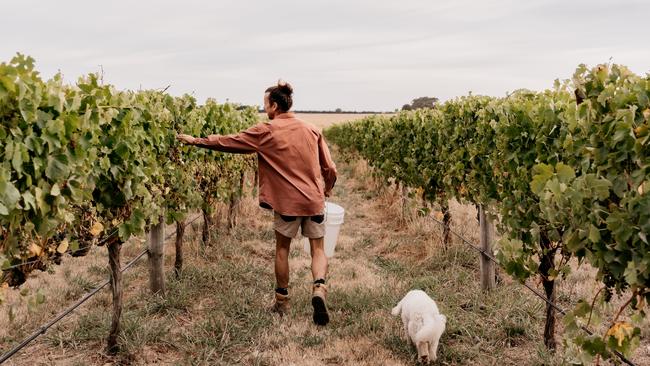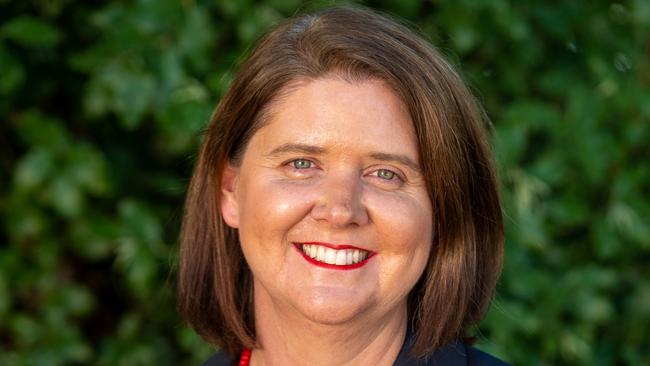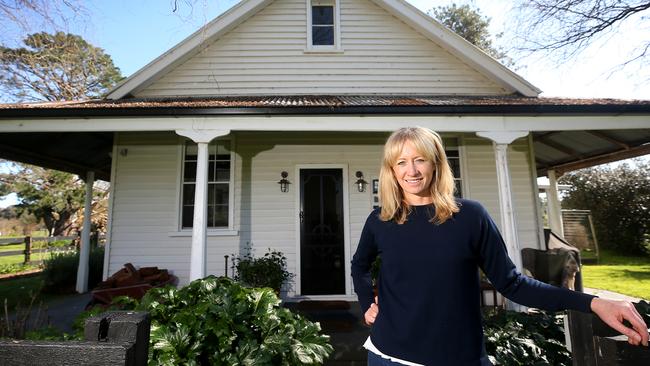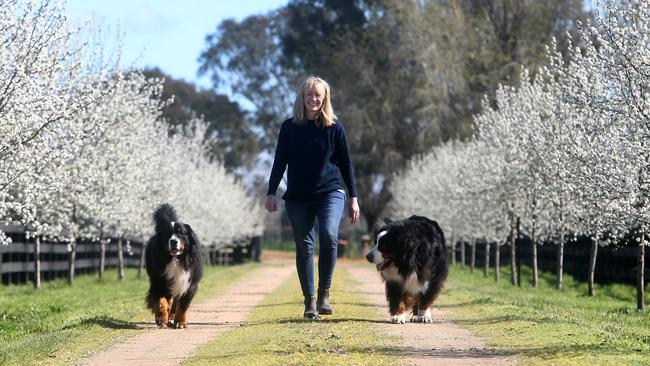Rural migration: Why 25 to 39-year-olds are moving to the country
People aged 25 to 39 are behind a wave of urban-to-rural migration. Here’s why they’re quitting the city.
Dissatisfaction with city life, job opportunities, and a better work-life balance continues to tempt metro dwellers from cities to country towns and regions across Australia.
Recent data shows it’s Millennials driving these figures as they head to the regions, with people aged 25 to 39 accounting for a greater percentage of migrants from metro regions to remote and rural Australia.

FROM WINE DRINKERS TO WINE MAKERS
High school sweethearts Travis and Katie Alstin are squarely in the young demographic, and made the move to the Surf Coast a year ago.
The pair have never been ones to shy away from an adventure.
Both have travelled the world but nothing has compared to the journey they embarked on 12 months ago when they uprooted their city life to buy a winery in the bush.
Travis, an electrician, and Katie, an osteopath, grew up in rural communities but had been living and working in the city – Melbourne and Geelong – for a decade.
The couple had longed to return to the country and hoped to buy land along the surf coast but price rises during the pandemic meant they had to broaden their search area to a more affordable location.
When they saw a small winery listed at Winchelsea, they jumped at the chance for a tree- and career-change.

“We love wine,” Katie said.
“We can drink and talk about wine for days but did we know anything about it before we moved out here? No.”
It has been a steep learning curve in vineyard maintenance and winemaking with wet conditions making management difficult even for seasoned professionals but it hasn’t deterred the Alstins.
“The sheer amount of labour involved for one man to run a six-hectare vineyard and 23-hectare property is still mind boggling,” Katie said.
“We knew we were in for a challenge. We knew the property was a project and saw potential but knew it required a lot of work to get it up to scratch. It’s a lot and not without its challenges but we wouldn’t trade it – we haven’t looked back since we moved here – it’s amazing.”
The couple has rebranded to become ALT Road Wines and has big plans for their upcoming vintages and re-imagined cellar door.
They love the close-knit towns nearby and are content raising their son, Murphy, six months, on the land as they were.
“It has given us a sense of community, space, fresh air and freedom that we had forgotten – we knew we wanted it back but forgot how good it actually was,” Katie said.
“It is bloody hard work but so rewarding especially when you get to drink a bottle of wine at the end of it – there is not much better reward than that.”
WHICH REGIONS DRAW A CROWD?
The Regional Australia Institute’s latest BIG Movers Report shows during the 2016-2021 census period regional Australia recorded a net gain of more than 166,000 people, almost triple the number of people compared with 2011-2016, with capital-to-regional movement increasing by more than 120,000 people to 614,144.
Of these people, more than 57,000 young people (25-39 years of age) shifted from cities to the regions between 2016 and 2021.
RAI chief executive Liz Ritchie said Sydney accounted for the majority of capital city net outflows, followed by Melbourne. Regional Queensland, NSW and Victoria saw the greatest number of arrivals from city areas.

“Regional Victoria is a continuing hot spot for city dwellers, with Greater Geelong having an 8 per cent share of total net internal migration to regional Australia in the past 12 months,” Ms Ritchie said.
“Moorabool 5 per cent, Baw Baw and Ballarat 3 per cent, and Greater Bendigo and Bass Coast 2 per cent.”
Larger regional communities becoming more appealing to capital city residents, and a growing dissatisfaction with city life were cited as key drivers of migration, according to RAI research.
“Metropolitan Australia is realising the regions really do have a lot to offer,” Ms Ritchie said. “From a huge number of job opportunities, to lifestyle benefits, the good life can really be had in our country communities.”

BENEFITS OF COUNTRY OUTWEIGH SUBURBAN CONVENIENCE
Molyullah-based beef producer and small business owner Bec MacDougall moved to regional Victoria from Melbourne in 2017, and has never looked back.
She said for people looking to exchange city living for a regional experience, a world of “exciting opportunities” awaits.
“Embracing rural life has offered us the opportunity to escape the urban rush and a chance to find equilibrium and tranquillity in our daily existence,” Ms MacDougall said.
“Beyond the quietude, the countryside has provided us an ideal backdrop for pursuing our individual passions and unleashing our creative spirits. The unhurried pace and ample space of rural living has encouraged self-discovery and allowed us to nurture new skills, interests and hobbies.”

For Bec and Angus, the benefits of regional life far outweigh the convenience of suburbia.
What initially started as a weekend project restoring a house on the Dunmore Farm property quickly morphed into a lifestyle change, with the MacDougalls deciding to shift full-time to regional Victoria.
“The allure of regional living took hold,” Bec said.
Dunmore Farm has now transformed into an operational Angus cattle property, farmstead accommodation and an online retail venture called Dunmore Shoppe.
The MacDougalls also run coffee businesses Emme Mac Black and The Branded Coffee Co, with community and provenance at heart.
Bec said life in regional Australia had shifted the couple’s perspective, particularly for Bec who grew up in a city.
“In contrast, Angus’s early life in Cobram immersed him in the countryside. This contrast has cultivated a new-found admiration for regional Australia,” Bec said.
“The pace of country life here would seem more relaxed, however we have never been busier. What Dunmore, and living regionally, has provided us is a space and place for creativity and inspiration. The regional lifestyle has also allowed us to pursue farming, fostering a deeper understanding and appreciation for the agricultural world.”
A regional setting was also the perfect place for the MacDougalls to raise their young daughter, Emme, they said.
“The benefits of moving regionally have been abundant, touching every aspect of our lives and aligning seamlessly with our vision for a more wholesome and fulfilling existence while staying connected to the city,” Bec said.




